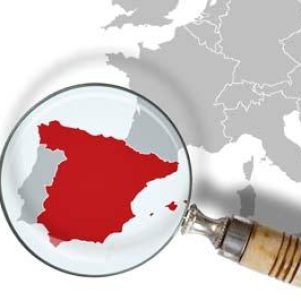The Spanish economy is currently one of the most dynamic in the Eurozone with more than 3% GDP growth. This recovery marks a progressive exit from the recent years’ crisis, and thankfully the real estate market is following a similar trend.
Prices started to recover at the end of 2014 and this recovery continued into 2015. The CBRE estimates (in their last report Spain Real Estate Market Outlook 2016) that prices of residential properties will increase by 6% in 2016. This growth mainly refers to the regions of Madrid, Barcelona, Valencia and the Baleares islands. There is also a strong increase in the number of building permits, as the building industry recovers.
Consequently, it is an ideal time for real estate investors. Spanish authorities are keener than ever to promote investment and there are currently many offers on properties. It has become easier for foreigners to get a local mortgage in Spain and many banks are offering attractive deals. A Sussex-based broker that specializes in Britons buying within the Eurozone has said it is very worthwhile to take out a local mortgage, especially if it will be let to generate a euro income. Although availability is lower it is still possible to obtain and generally buyers can borrow up to 70 per cent of the value of the property from 3.2 per cent. For British buyers, it is a great time to buy given the pound’s new strength against the euro. For example, if a British citizen were to buy a €500,000 Spanish property, they could now save £26,041, compared to in January 2014. The euro has weakened against the sterling and boosted the spending power of sterling buyers. It has been advised that British investors invest now in property in Spain and in the Eurozone in general as the pound could weaken, especially as general elections draw closer.
Whether buying a summer home in Costa Brava or investing in a flat in Madrid, many British investors can be tempted to buy a property in Spain. However, the property buying process in Spain works differently than that of the process in the United Kingdom. It is important to take into account its specificities and it is essential to make inquiries before a purchase. In Spain, the notary plays a key role in the buying process by drafting the deed of sale and collecting taxes. However, the notary does not review the information provided. Thus, the notary does not protect the buyer from potential frauds or unpleasant surprises. This means that people must be very vigilant when buying a property in Spain. For this reason, foreigners usually rely on the services of a lawyer in order to control the risks linked to the transaction. The lawyer, among other things, checks the land registry. From a more practical point of view, this is more convenient for the buyer because representation by a lawyer can avoid useless roundtrips for the buyer.
To conclude:
- The Spanish real estate sector is dynamic, it has good growth perspectives and prices are still low. Good deals can be done
- The Pound Sterling is considerably stronger than the euro currently, and so British purchasing power is high. Buying property in Spain is more advantageous than before
- The buying process in Spain is different from the British process. It is important to be vigilant and make inquiries about all its aspects.
Olivier Dufour & Clément-Henri Girardot
For further information regarding real estate investment in Spain,





